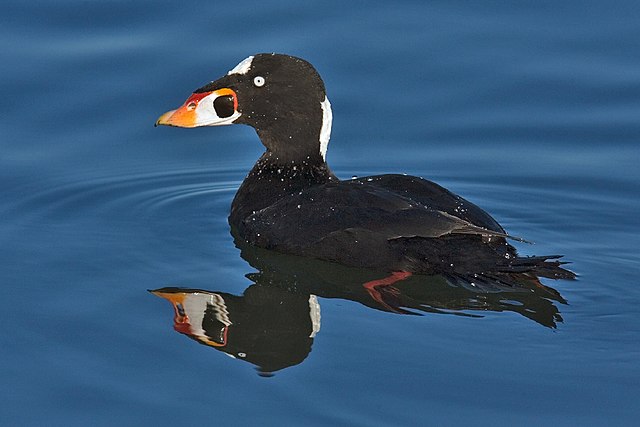Suttle Lake is a natural lake near the crest of the Cascade Range in central Oregon, United States, covering 253 acres (1.02 km2). It was named in honor of John Settle, whose name was misspelled when the lake was officially recorded as a geographic feature. Today, the lake is located within the Deschutes National Forest and serves as one of central Oregon's most popular outdoor recreation sites, with three large campgrounds and two day-use areas along the north, west, and south shores of the lake. The Oregon Department of Fish and Wildlife regularly stocks the lake with rainbow trout.
Suttle Lake viewed from Link Creek camp
A male surf scoter
Blue Bay camp site overlooking Suttle Lake
Campers at South Shore campground
Blue Lake Crater is a maar, or a broad, low-relief volcanic crater, in the U.S. state of Oregon. Located in Jefferson County, it consists of three overlapping craters, which hold Blue Lake. The drainage basin for Blue Lake has very steep, forested slopes and is mostly part of the explosion crater left by the volcano's eruption. The volcano lies within the Metolius River basin, which supports a wide array of plant life, large and small mammals, and more than 80 bird species. A 2009 Oregon law designated the Metolius River basin as an area of critical concern, preventing large-scale development and protecting wildlife.
Blue Lake Crater (prior to the B&B Complex fires in summer 2003)
Blue Lake in 1940
Blue Lake crater is made up of basalt and picrite basalt, or picrobasalt (representative sample pictured)







